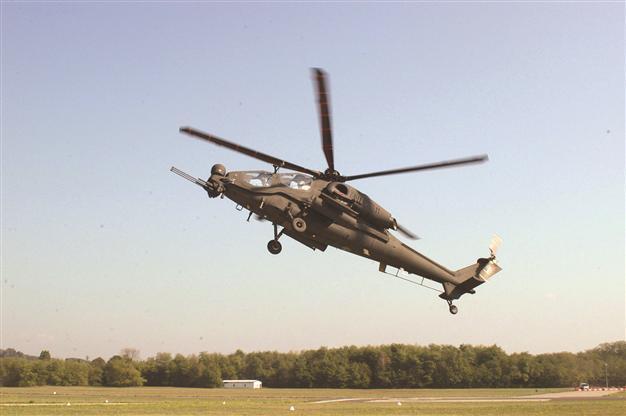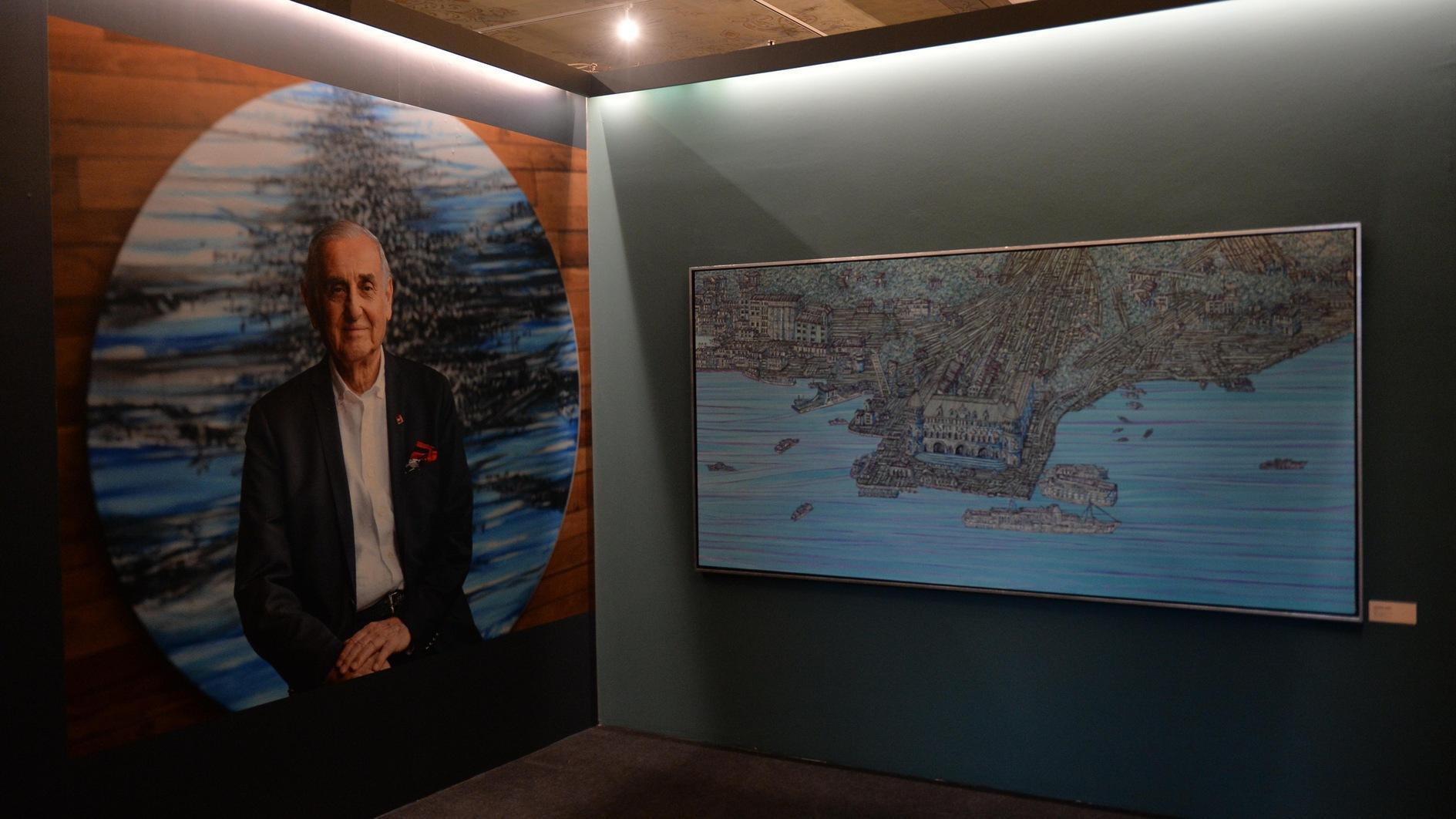Turkish-Italian group on South Korean copter shortlist
ANKARA - Hürriyet Daily News

AgustaWestland and TAI has already shaken hands to jointly develop T-129 attack helicopters for the Turkish military. AA photo
South Korea has shortlisted a Turkish-Italian defense group consisting of Turkish Aerospace Industries (TAI) and AgustaWestland, together with two U.S. companies, as the potential makers of up to 50 attack helicopters for the nation’s military, a South Korean official said over the weekend.TAI-AgustaWestland has been building 59 T-129 helicopters for Turkey’s military, and deliveries will start toward the end of the year. TAI-Agusta Westland has been shortlisted together with the U.S.
companies Boeing, maker of AH-64D Apache gunships for the U.S. Army, and Bell Helicopter Textron, maker of the Cobra family of helicopters for the U.S. Marine Corps, in the South Korean contest worth billions of dollars, the Korean official said.
“It is a major success for TAI and AgustaWestland to be shortlisted even before their product entered service in the Turkish military,” the official said.
TAI-Agusta Westland is due to deliver nine T-129s to the Turkish Army before the end of this year. The T-129 is a Turkish version of the Italian company’s A-129 Mangusta International attack
helicopter. One Turkish procurement official confirmed that South Korean officials will attend the tests for the T-129, scheduled to be held in July. South Korea’s decision on its gunship fleet is expected to come in October.
Apache the main rival
“The competition is mainly between Boeing, the long time-maker of the Apaches, which can be considered the best attack helicopter maker in the world, and TAI-AgustaWestland,” said one defense analyst. “The South Korean military fervently wants the Apache for their service. And TAI-AgustaWestland definitely needs to cut its price considerably to support its bid.”
Turkey wants top promote the T-129, so is willing to do that. “As for the Italians, they are in a deep economic crisis, and also want this sale very much,” the analyst said. He added that South Koreas bid to buy between 35 and 50 gunships is presently one of the world’s biggest programs.
Prime Minister Recep Tayyip Erdoğan said recently that Turkey’s while bilateral trade volume with South Korea amounts to seven billion dollars, Turkey’s exports to the country amount to only $500 million, and has called for moves to correct this imbalance. The two countries have recently signed a free trade agreement, with the South Korean side pledging to lessen the trade imbalance.
In addition, Turkey is soon expected to announce the winner of its program to build a nuclear power plant worth at least $10 billion in the country’s north, and South Korea’s Kepco is among the most-favored contenders. Kepco is up against the Japanese, the Chinese and the Canadians in the nuclear tender. Defense analysts say that although the two programs are not linked to each other officially, South Korea’s attack helicopter program is a good opportunity to correct the trade imbalance.
South Korea is mainly expected to use its attack helicopters to prevent North Korea’s use of small
patrol boats operating in the Yellow Sea, to the west of the two countries.
Turkey and South Korea have enjoyed very close political ties since the Korean War of the 1950s, when Turkey was part of the United Nations forces fighting against North Korea and China. The two countries have also recently forged good defense ties.
Defense ties
Under a $1 billion dollar license agreement, Turkey has been building South Korean howitzers since the 1990s. Korean Aerospace Industries is now building, together with TAI, a $450 million program to build 50 basic trainers at the TAI plant, and the deal is coming to an end. Hyundai Rotem, under a $500 million agreement, is helping the Turkish armored vehicles maker Otokar to build four prototypes of Turkey’s first indigenous tank, the Altay, which will be completed around 2017. TAI also views the Koreans as a potential a partner in a multibillion-dollar program to build an indigenous fighter aircraft after 2020.
















